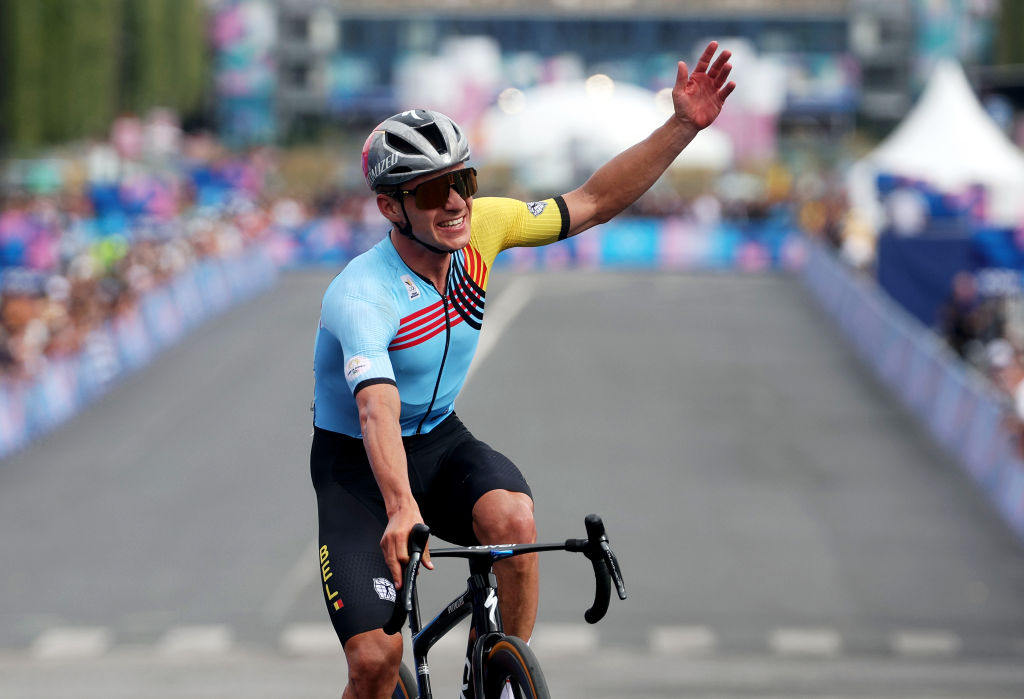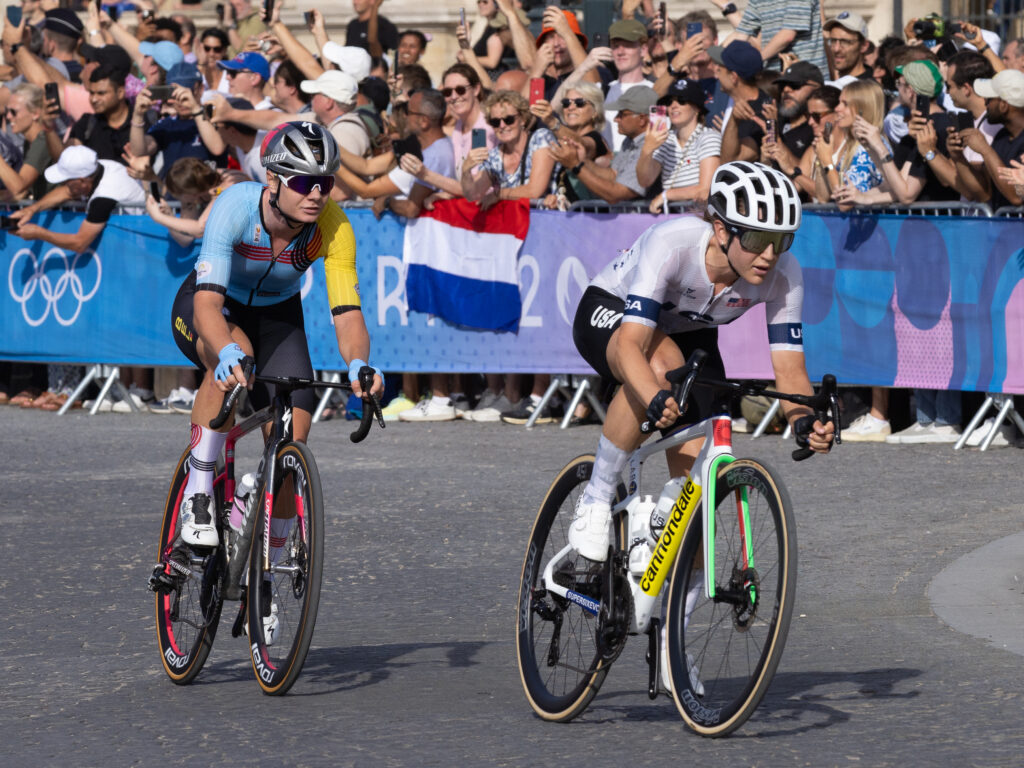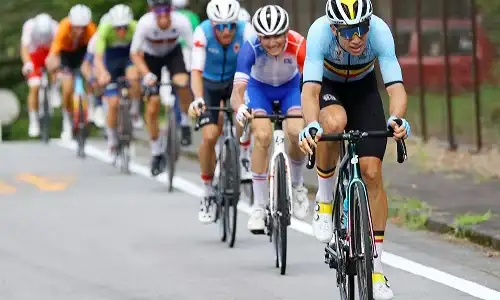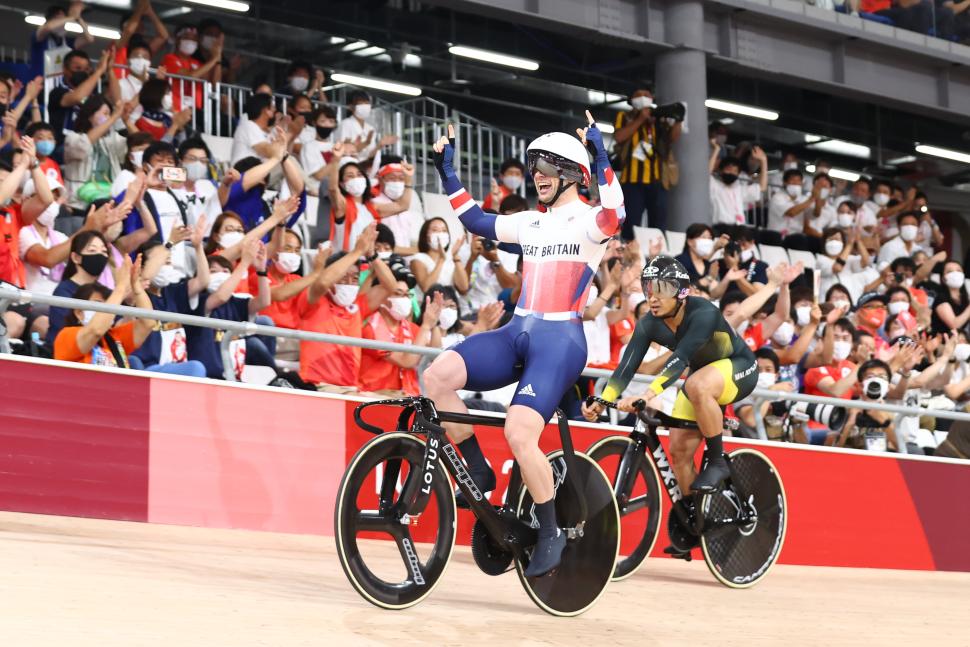As the Paris 2024 Olympics approach, the anticipation for the road cycling events is palpable. Road cycling is a test of endurance, speed, and strategic acumen, with athletes competing on various terrains and distances. This dynamic sport has a rich history in the Olympics, showcasing some of the world's most talented cyclists as they battle for gold on the picturesque roads of Paris and the surrounding regions.
The Essence of Road Cycling
Road cycling encompasses a variety of events, each requiring different skills and strategies. The two primary formats in the Olympics are the individual time trial and the road race.

Road Race: Cyclists race over a long distance, often covering 200 kilometers or more. This event requires a combination of endurance, speed, and tactical teamwork. Riders must manage their energy, position themselves strategically within the peloton, and capitalize on opportunities to break away from the pack.
Individual Time Trial: This event features cyclists racing against the clock over a set distance, typically around 40 kilometers for men and 30 kilometers for women. Time trials demand exceptional speed and endurance, as riders aim to maintain a high pace for the entirety of the course.

Both formats challenge cyclists to master the art of pacing, navigating turns, and managing their nutrition and hydration throughout the race. Athletes must also contend with varying weather conditions, road surfaces, and elevation changes, making adaptability a crucial aspect of success in road cycling.
The Olympic History of Road Cycling
Road cycling has been a part of the Olympic program since the 1896 Athens Games, where it made its debut with a 100-kilometer race for men. The event has evolved significantly over the years, expanding to include women's road cycling and various race formats. The Union Cycliste Internationale (UCI) governs road cycling competitions, ensuring the sport maintains high standards of competition and safety.
In recent years, road cycling has gained increased visibility, thanks to the popularity of major races like the Tour de France. The Paris 2024 Olympics will feature both men's and women's road races, highlighting the depth of talent in the sport and celebrating the achievements of female cyclists on the Olympic stage.
Training and Preparation for Athletes
Preparing for the Paris 2024 Olympics demands rigorous training, dedication, and strategic planning. Road cyclists undergo a multifaceted training regimen that includes:

Endurance Training: Cyclists typically spend many hours on the bike, building their aerobic capacity and stamina. Long rides, often lasting several hours, help athletes adapt to the demands of the road race.
Speed Work: Interval training and sprint sessions are crucial for developing the explosive power needed for finishing sprints and breakaway attempts. Athletes focus on increasing their speed and anaerobic capacity to excel in key moments of the race.
Tactical Training: Understanding race dynamics is essential in road cycling. Cyclists study tactics such as breakaways, group riding, and positioning within the peloton to optimize their chances of success.

Nutrition and Hydration: Proper fueling is critical for maintaining energy levels during long races. Athletes develop personalized nutrition plans, incorporating energy gels, bars, and hydration strategies to ensure they perform at their best.
Mental Preparation: The psychological aspect of competition is paramount in road cycling. Athletes work with sports psychologists to enhance their focus, manage stress, and develop mental resilience to handle the pressures of Olympic competition.
The Thrill of Competition
The excitement of road cycling stems from its unpredictable nature and the intense battles that unfold for the race. Key elements contributing to the thrill include:

Strategy and Teamwork: Road races often involve complex strategies among teams. Cyclists work together to create opportunities for their teammates while protecting each other from the wind and conserving energy for crucial moments.
Breakaways and Sprints: The tension builds as athletes attempt breakaways, seeking to establish a lead over the peloton. The final sprint to the finish line is often heart-pounding, as cyclists unleash their speed in a battle for the gold medal.
Scenic Backdrops: The Paris 2024 road cycling events will feature stunning landscapes and iconic landmarks, providing a visually captivating experience for spectators. From the picturesque countryside to the bustling streets of Paris, the routes promise to be as breathtaking as the competition.

The Role of Technology in Road Cycling
Technology plays an increasingly vital role in the evolution of road cycling, enhancing performance and safety for athletes. Key advancements include:
Bike Design: Modern road bikes are engineered for aerodynamics and efficiency. Lightweight materials, advanced frame geometries, and aerodynamic components allow cyclists to maximize speed and minimize fatigue.
Data Analytics: Cyclists utilize data from power meters, heart rate monitors, and GPS devices to analyze their performance, optimize training, and strategize race plans. Coaches and athletes can track progress and make data-driven decisions.

Aerodynamics: Innovations in helmet design, clothing, and other gear have improved aerodynamic efficiency, helping athletes reduce drag and enhance performance.
The Cultural Impact of Road Cycling
Road cycling has a vibrant and passionate community, promoting values of teamwork, perseverance, and sportsmanship. Major events draw large crowds, creating a sense of camaraderie among fans and participants.
Cycling clubs and organizations play a crucial role in fostering talent and encouraging participation at all levels. Youth programs and grassroots initiatives introduce young athletes to the sport, emphasizing skill development and encouraging a lifelong love for cycling.
The Future of Road Cycling
The Paris 2024 Olympics will serve as a significant platform for road cycling, highlighting the talents of elite cyclists while inspiring future generations to engage in the sport. The Olympic exposure will likely lead to increased participation and interest in cycling worldwide.
Continued efforts to promote diversity and inclusion will be essential for the growth of road cycling. Initiatives aimed at expanding access to cycling facilities and programs will help ensure the sport remains vibrant and welcoming for athletes from all backgrounds.

Conclusion
Road cycling at the Paris 2024 Olympics promises to be an exhilarating showcase of endurance, speed, and strategy. As athletes navigate challenging courses and engage in tactical battles, they will exemplify the spirit of competition that defines the Olympic Games.
With its rich history, dynamic competition, and cultural significance, road cycling stands out as a remarkable discipline within the Olympic program. Fans can expect thrilling races that highlight the athleticism and determination of the world’s best cyclists, making road cycling a must-watch event at Paris 2024. As the excitement builds, the athletes prepare to make their mark on the Olympic stage, inspiring future generations to embrace the joy and challenge of cycling.








